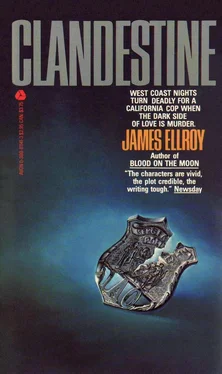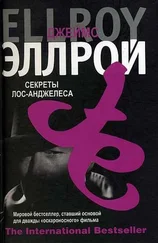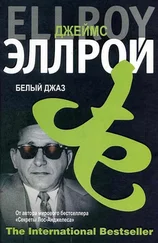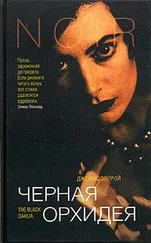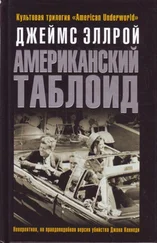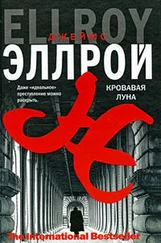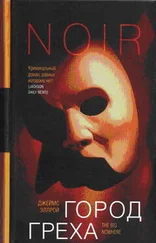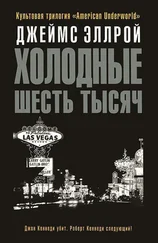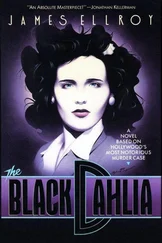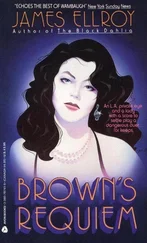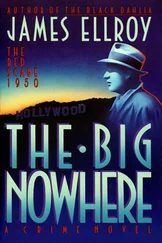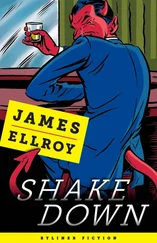Lutz interrupted me. “Are you fishing in the same stream as us, Underhill?”
“All the way. A big load of morph was stolen, I know that, and that would explain where Johnny got the stuff he was pushing.”
Kraus and Lutz looked at each other. “Use the phone in the skipper’s office,” Lutz said.
Kraus jumped up from his desk and walked to a cubicle partitioned off and festooned with Milwaukee Braves’ pennants.
“All the particulars, Walt,” Lutz called after him.
“Gotcha!” Kraus returned.
I looked at Lutz and popped my next request: “Could I see DeVries’s rap sheet?”
He nodded and went to a bank of filing cabinets at the far end of the squad room. He fumbled around in them for five minutes, finally extracting a file and returning to me.
I was getting nervous. Kraus had been on the telephone a long time, and it was only 6:00 A.M. in L.A. His protracted conversation at that hour struck me as ominous.
The manila folder had “DeVries, John Piet; 6-11-14” typed on the front. I opened it. When I saw the series of mug shots clipped to the first page my hands started to shake and my mind recoiled and leaped forward at the same time. I was looking at the face of Michael Harris. Every curve, plane and angle was identical. It was more than a basic familial resemblance; it was purely parental. Johnny was Michael’s father, but who was his mother? It couldn’t have been Marcella. With shaking hands I turned the first page and went into double shock: John DeVries had listed Margaret Cadwallader of Waukesha, Wisconsin, as next of kin when he was arrested for assault and battery in 1946.
I put down the folder and suddenly realized I was gasping for air. Floyd Lutz had rushed to the water cooler and was now shoving a paper cup of water at me.
“Underhill,” he was saying. “Underhill? What the hell is the matter with you? Underhill?”
I came out of it. I felt like a madman restored to sanity by a divine visitation; someone viewing reality for the first time.
I made my voice sound calm: “I’m all right. This guy DeVries reminded me of someone I knew as a kid. That’s all.”
“You holding out on me? Man, you look like you just got back from Mars.”
“Ha-ha!” My laughter sounded phony even to my own ears, so to forestall anymore questions, I read through John DeVries’s rap sheet; scores and scores of arrests for drunkenness, assault and battery, petty theft, and trespassing; a dozen thirty- and forty-five-day incarcerations in the Milwaukee County Jail; but nothing else related to blood. No further mention of Maggie Cadwallader, no mention of Marcella, no mention of children.
When I finished I looked up to find Walt Kraus staring down at me. “I pulled some tails and got what you wanted,” he said. “The robbery was big-time, off an aircraft carrier bound for the Pacific. Forty-five pounds of morph — enough to supply every hospital ship in the fleet and then some. Three Marine liaisons were guarding it. Someone slipped them something, and they passed out. The snatch was made at three o’clock in the morning. The infirmary was picked clean. It never made the news because the navy high brass kiboshed it. DeVries and his sister and two others were strong suspects — they were all assigned to pharmaceutical supply, but they all had tight alibis. They were all questioned repeatedly, jailed as material witnesses, and finally released. The dope was never recovered. They—”
“What were the names of the other two suspects?” I blurted out.
Kraus consulted some papers in his hand. “Pharmacist’s mates Lawrence Brubaker and Edward Engels. Underhill, what the hell is the matter with you?”
I stood up, and the squad room, Kraus and Lutz reeled in front of me.
“Underhill?” Lutz called as I started to walk away. “Underhill!”
“Call Will Berglund,” I think I shouted back.
Somehow I made it out of the police station and out into the hot Milwaukee sunlight. Every car and passerby on the street, every fragment of the passing scene, every inundation of the red brick midwestern skyline looked as awesome and incredible as a baby’s first glimpse of life out of the womb and into the breach.
There was only one Cadwallader in the Milwaukee-Waukesha area phone directory: Mrs. Marshall Cadwallader, 311 Cutler Park Avenue, Waukesha. Rather than call first, I drove directly there, straight back over Blue Mound Road.
Cutler Park Avenue was a block of formerly ritzy townhouses converted into apartment houses and four-flats. Cutler Park itself — “Wisconsin’s Greatest Showplace of Genuine Indian Artifacts” — stood across the street.
I parked my loaner and went looking for 311, checking out house numbers that ran inexplicably out of sequence. Number 311 was at the end of the block, a two-story apartment house guarded by a plaster jockey with one arm outstretched. The front door was open, and the directory in the small entrance foyer told me that Mrs. Marshall Cadwallader lived in apartment 103. My suspicion was that Mrs. Cadwallader was a widow, which suited my purposes: a single woman would be easier to question.
I felt my pulse race as I recalled the photographs Maggie had shown me of her adventurous-looking father. I walked down a hallway lined with cheap prints of southern plantations until I found number 103. I knocked, and the very image of what Maggie Cadwallader would have looked like at sixty-five answered the door.
Startled by this permutation of time and place, my now familiar insurance cover story went out the window and I stammered: “Mrs. Cadwallader, I’m a friend of your late daughter’s. I investigated her...” The woman blanched as I hesitated. She looked frightened, and seemed about to slam the door in my face when I caught myself and continued: “... her death for the Los Angeles Police Department back in 1951. I’m an insurance investigator now.” I handed her one of my cards, thinking that I almost believed I was in the insurance racket.
The woman took the card and nodded. “And you...” she said.
“And I believe there are other deaths tied into Margaret’s.”
Mrs. Cadwallader showed me into her modest living room. I seated myself on a couch covered with a Navajo blanket. She sat across from me in a wicker chair. “You were a friend of Maggie’s?” she asked.
“No, I’m sorry, I mean... I didn’t mean that. I was one of four detectives assigned to the case. We—”
“You arrested the wrong man and he killed himself,” Mrs. Cadwallader said matter-of-factly. “I remember your picture in the paper. You lost your job. They called you a Communist. I remember thinking at the time how sad it was, that you made a mistake and they had to get rid of you so they called you that.”
I felt the queerest sense of absolution creep over me.
“Why are you here?” Mrs. Cadwallader asked.
“Did you know a woman named Marcella DeVries Harris?” I countered.
“No. Was she Johnny DeVries’s sister?”
“Yes. She was murdered in Los Angeles last month. I think her death was connected to Margaret’s.”
“Oh, God.”
“Mrs. Cadwallader, did Margaret have a child out of wedlock?”
“Yes.” She said it sternly, without shame.
“In 1945 or thereabouts?”
“On August 29, 1945.”
“A boy?”
“Yes.”
“And the child...”
“They gave up the child!” Mrs. Cadwallader suddenly shrieked. “Johnny was a drug addict, but Maggie had good stuff in her! Good Cadwallader-Johnson stock! She could have found herself a good man to love her, even with another man’s baby. Maggie was a good girl! She didn’t have to take up with drug addicts! She was a good girl!”
Читать дальше
